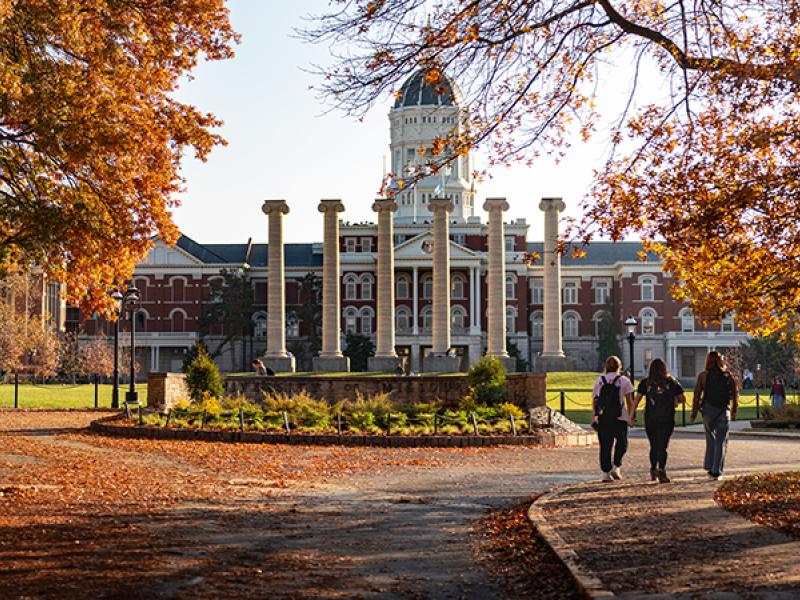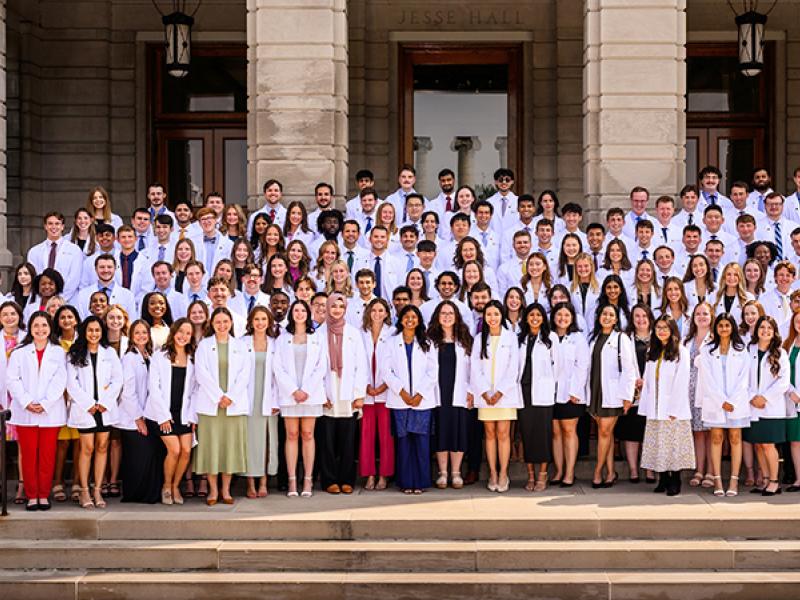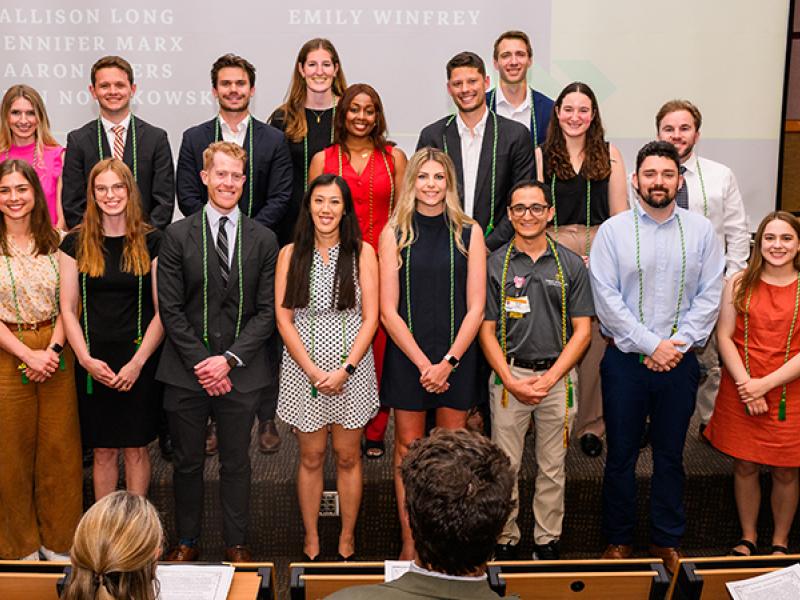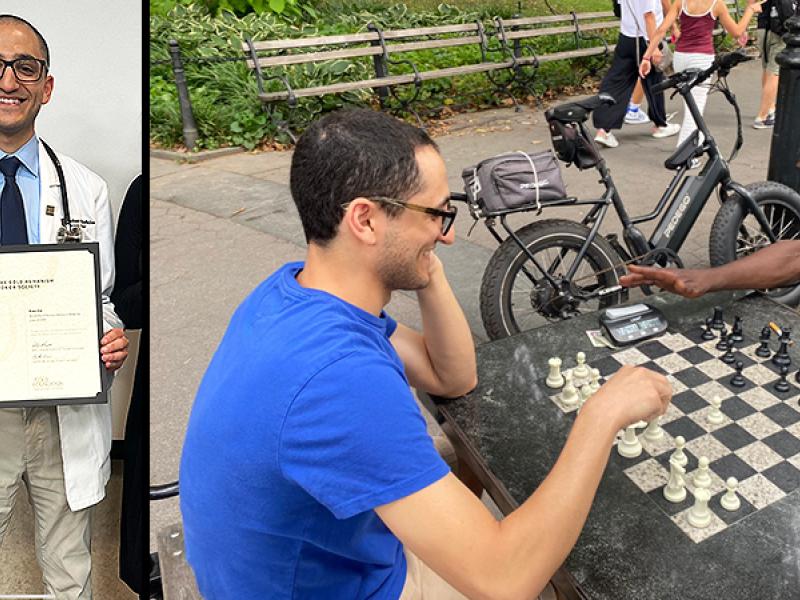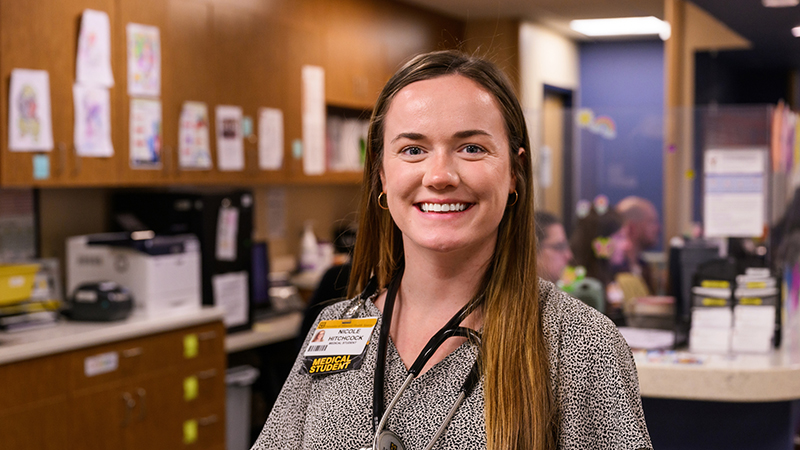
For most tourists traveling to Brazil, learning a few key Portuguese phrases before arriving may be beneficial. Maybe what the word for “hello” is – oi – or how to say, “How are you?” “Tudo bem?”
For Nicole Hitchcock, a fourth-year medical student at the Springfield Clinical Campus, she needed to learn more specific vocabulary. For example, how to say, ‘infectious disease’ (doença infecciosa) and ‘bacteriophage’ (bacteriófago).
Hitchcock spent most of the past year in Brazil thanks to the Boren Award fellowship program, administered by the U.S. Department of Defense. Its goal is to educate citizens on foreign languages and cultures and help foster international cooperation. Nearly 300 students nationwide were accepted into the program last year, either as scholars or fellows.
Seventeen of them went to Brazil, including Hitchcock. She already learned some Spanish and wanted to learn another language, and Portuguese sounded like a good choice — not only to communicate with others, but also for her career.
“As someone who's interested in global health, I was thinking, Brazil is a huge nation here in the Western Hemisphere, so having that connection (to) a lot of tropical medicine, a lot of infectious disease, Portuguese could really come in handy,” Hitchcock said. “Also, if I wanted to go to Africa at some point, there are a lot of nations there where I could potentially use Portuguese, like in Mozambique and Angola.”
While in Brazil, Hitchcock wanted to keep up with her medical studies. She secured a position in the lab of Roberto Badaro, MD, PhD, an infectious disease expert living in Salvador, Brazil – the same city she would live in for about a year. Hitchcock focused on studying and finding bacteriophages, which are viruses specific to bacteria and can potentially help treat bacterial infections.
“Because there's so much antibiotic resistance in the hospitals in the world, they're looking at these other ways of combating bacterial infections as a way to help decrease antimicrobial resistance,” Hitchcock said.
Multiple bacteriophages, also known simply as “phages,” would be applied as an added treatment for antibiotic-resistant infections, administered at the same time as antibiotics. This ‘cocktail’ treatment has been studied in some clinical trials and a few individual patient cases but isn’t a regular care method — yet.
“The big hinderance right now to this area of research is that there aren't enough clinical trials for it to really become standardized care,” Hitchcock said.
To help current trials and encourage more research, Hitchcock spent her days tracking down specific phages from the environment – places where bacteria thrived, like in water or sewage. She’d then isolate them into storage, creating a “bacteriophage bank.” The hope is that this will streamline future clinical trials by having them ready for use.
“It’s just gotten as far as this at the lab in Salvador, though,” Hitchcock said. “We were just working on finding these phages and then trying to get them sequenced and characterized.”
Before she left for Brazil, Hitchcock spent a month at the Center for Innovative Phage Applications and Therapeutics in California for training and organizing the project. She believes her education at the MU School of Medicine helped her secure a spot in the global collaboration.
"They knew all about Mizzou,” she said. “Knowing the academic standards here, I think they had real faith in me, which was really nice.”
Outside of the lab, Hitchcock attended Portuguese classes and later, private lessons. She learned to surf, experienced the fervor of Brazil in the World Cup and made some friends along the way.
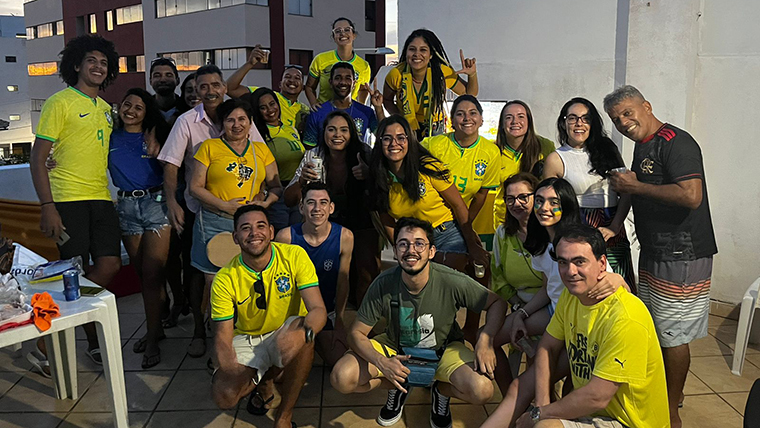
“I was really lucky to meet a lot of people through my lab who were young and excited to introduce me to the culture of the area,” Hitchcock said.
Hitchcock was the only international student in the phage lab for 10 months, which made it critical for her to learn Portuguese, and fast. It was stressful, challenging and at times, uncomfortable. But that’s exactly the kind of experience she wanted.
“The language school is really cool, because you’re meeting a lot of other international students,” Hitchcock said. “Working in a lab, however, where you’re one of the few, if not the only international person, is a whole different ballgame.”
Nicole is in her last year of medical school, at the Springfield Clinical Campus. She’s now looking into residency programs, hopeful to find a place with a high Brazilian or Portuguese-speaking population to continue her language journey.


